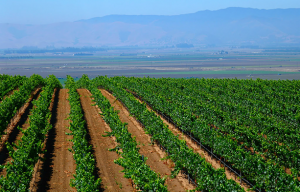Looking for the roots of risk

On a bright day in the first week of August, Julianna Deardorff escorted five Chilean scientists from Berkeley to The Farm, an agricultural center and farm in Salinas, California, about 100 miles south of the Bay Area. The Farm has been in the same family for four generations; the brothers who run it now have made strides in the past few decades to transition to organic farming. In the fields, the researchers found strawberries, one of 30 diverse crops grown in the sweeping fields. Others include corn, pumpkins, tomatoes—and, like most farms in the sprawling Salinas valley, lettuce.
The researchers were there to study growth—not of the verdant plants that thrive in the exceptional climate and nutrient- rich soil of the valley, but of the children who live in this agricultural community. Deardorff, an associate professor in the School of Public Health’s Maternal and Child Health program, wants to understand how early-life experiences can influence puberty and risky behaviors among adolescents. The bulk of her research focuses on how those pressures affect Latino populations. Recent research suggests that girls and boys of all ethnicities, and Latinas/Latinos in particular, are going through puberty at earlier and earlier ages around the world. Researchers often point to increasing rates of obesity to explain the trend, but Deardorff, like many other investigators, suspects that such an explanation is only part of the story.
Read more here at Berkeley Health Online.